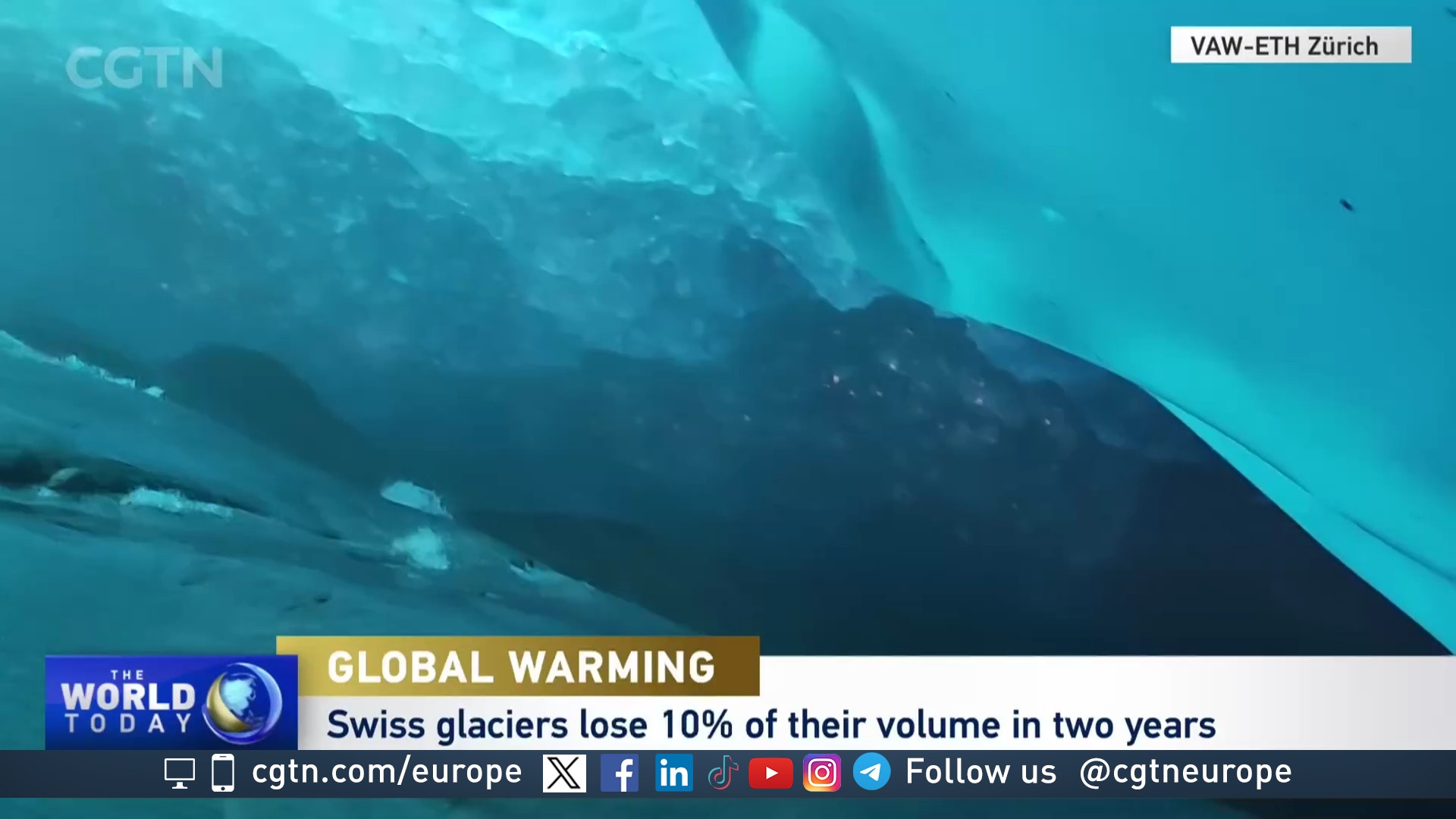02:03

Warm temperatures have led to another extreme glacier retreat in the Alps. According to Switzerland's Academy of Sciences, this summer was the second worst melting season on record – only topped by last year.
Over the last two summers combined, Swiss glacier volume has gone down 10 percent – the same amount that took from 1960 to 1990 to melt. Smaller glaciers such as Sankt Annafirn completely vanished this summer – and due to high temperatures and low snowfall, the Alps will be ice-free much sooner than expected.

The iconic ice ridge to Piz Murtèl in Switzerland is disappearing. /R.H., M. Huss
The iconic ice ridge to Piz Murtèl in Switzerland is disappearing. /R.H., M. Huss
It's not only Switzerland that has seen an extreme glacier retreat this year. Neighboring Austria has experienced the same issue. The Academy of Sciences in Vienna warn that the country's glaciers will be gone by 2050 – half a century earlier than previously expected.

Greilinger from Austria's federal climate agency is worried about the country's largest glacier. /CGTN/Mediaworks
Greilinger from Austria's federal climate agency is worried about the country's largest glacier. /CGTN/Mediaworks
Marion Greilinger, the head of glacier monitoring at GeoSphere Austria says the Alps' extreme glacier retreat does not have consequences on the water supply "because in Austria and also in the Alps water supply is more dependent on the seasonal snow cover." But of course the landscape will transform, she adds. "Skiing resorts on glaciers might also be affected because of infrastructure problems due to the glacier retreat."

In about 27 years, the Pasterze glacier will be gone. /CGTN/Gasser
In about 27 years, the Pasterze glacier will be gone. /CGTN/Gasser
Austria's longest glacier, the Pasterze, attracts about a million visitors per year – but there is less and less of it to see. Greilinger and her team are observing how the glacier is about to break in two halves. "The connection between the tongue and the upper part is getting smaller and smaller and this you can see year by year." Despite all of this, she is in awe about the beauty of the so-called eternal ice. "It's still amazing how much ice there is and it's still a nice environment to work in."
Subscribe to Storyboard: A weekly newsletter bringing you the best of CGTN every Friday